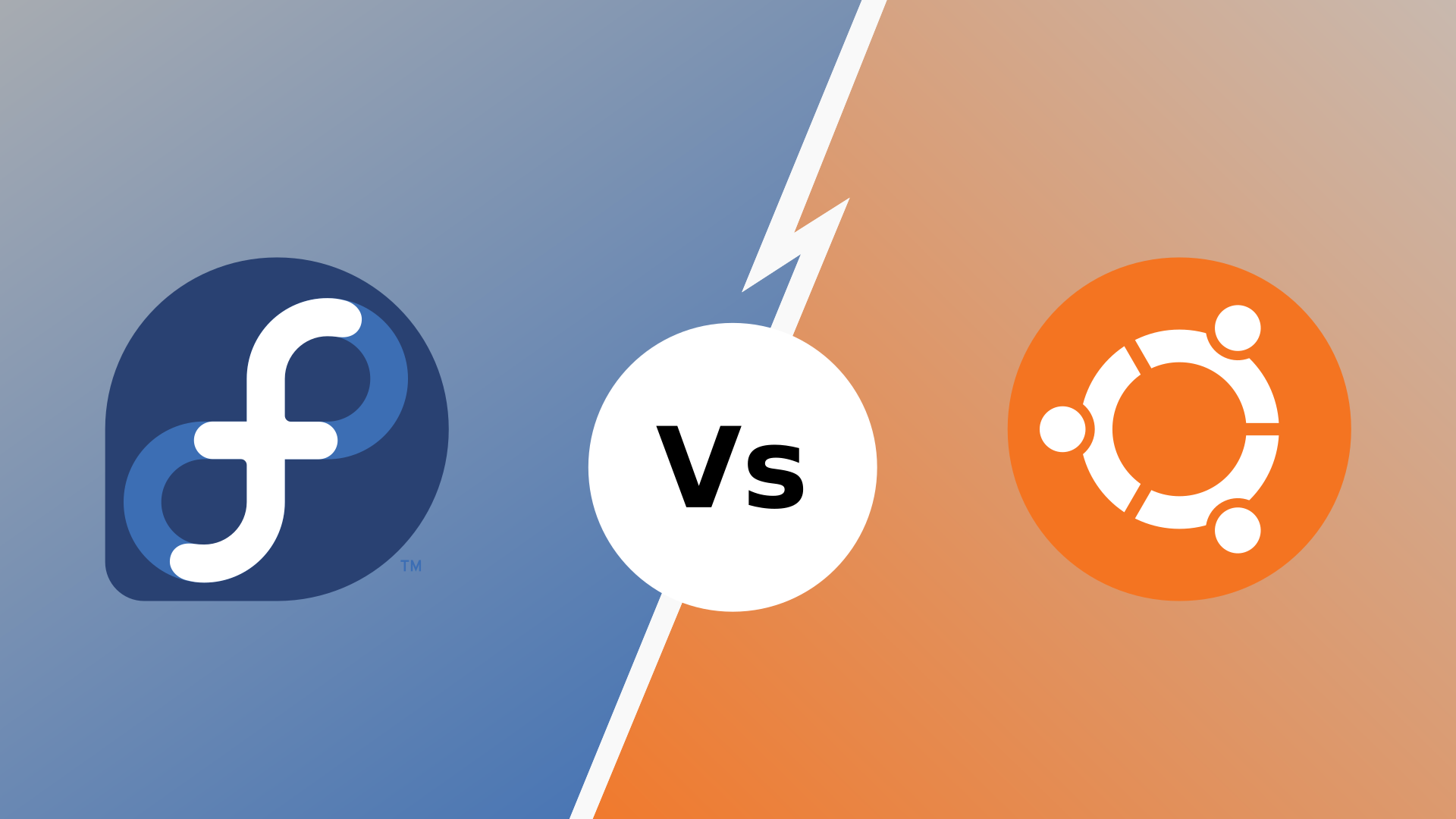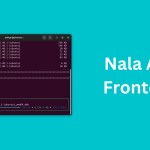Linux is a free and open-source operating system that is becoming increasingly popular among users of all skill levels. It is known for its stability, security, and flexibility. There are many different Linux distributions available, each with its own unique set of features. Two of the most popular Linux distributions are Fedora Linux and Ubuntu.
Fedora Linux is a community-driven distribution that is known for its cutting-edge features and its commitment to free and open-source software. Ubuntu is a more polished and user-friendly distribution that is known for its large community and wide range of software support.
In this blog post, we will compare and contrast Fedora Linux and Ubuntu to help you decide which distribution is right for you.
Fedora Linux vs Ubuntu: Release Cycle
One of the key differences between Fedora Linux and Ubuntu is their release cycle. Fedora Linux is released every six months, while Ubuntu is released every six months for the regular version and every two years for the long-term support (LTS) version.
Fedora Linux release cycle
Fedora Linux is released every six months, with each release being supported for 13 months. This means that users can expect to receive security updates and bug fixes for their Fedora Linux installation for 13 months after its release. After 13 months, the release is no longer supported and users are encouraged to upgrade to a newer release.
Fedora Linux’s rapid release cycle allows users to have access to the latest and greatest software. However, it also means that Fedora Linux can be less stable than other Linux distributions, as there is less time for testing between releases.
Ubuntu release cycle
Ubuntu has two release cycles: the regular release cycle and the long-term support (LTS) release cycle. The regular release cycle is similar to Fedora Linux’s release cycle, with each release being supported for nine months. However, the LTS release cycle is different, with each release being supported for five years.
Ubuntu LTS releases are a good choice for users who need a stable and reliable operating system. LTS releases receive security updates and bug fixes for five years, making them a good choice for businesses and other users who need a stable and reliable operating system.
Comparison
The following table compares the release cycles of Fedora Linux and Ubuntu:
| Distribution | Release cycle | Support period |
|---|---|---|
| Fedora Linux | Every six months | 13 months |
| Ubuntu (regular) | Every six months | 9 months |
| Ubuntu (LTS) | Every two years | 5 years |
Fedora Linux vs Ubuntu: Package Management
Another key difference between Fedora Linux and Ubuntu is their package management system. Fedora Linux uses the DNF (Dandified YUM) package manager, while Ubuntu uses the apt package manager.
DNF package manager
DNF is a modern package manager that is designed to be fast, reliable, and easy to use. It supports all of the features of the previous YUM package manager, such as transaction support, dependency resolution, and delta updates. However, DNF is also more efficient and easier to use than YUM.
APT package manager
APT is a powerful and versatile package manager that is used by many Linux distributions, including Debian, Ubuntu, and Mint. It is known for its speed, reliability, and ease of use. apt also has a number of features that make it ideal for use in enterprise environments, such as support for central repositories and remote package management.
Comparison
The following table compares the package management systems of Fedora Linux and Ubuntu:
| Distribution | Package manager | Features |
|---|---|---|
| Fedora Linux | DNF | Fast, reliable, and easy to use. Supports transactions, dependency resolution, and delta updates. |
| Ubuntu | apt | Powerful, versatile, and easy to use. Supports central repositories and remote package management. |
In addition to the DNF and apt package managers, Fedora Linux and Ubuntu also support Flatpak, Snap, and Appimage universal package format.
Fedora Linux and Ubuntu also have their own graphical package managers: GNOME Software for Fedora Linux and Ubuntu Software Center for Ubuntu. These graphical package managers make it easy to install, update, and remove software applications without having to use the command line.
Fedora Linux vs Ubuntu: Desktop Environment
The desktop environment is the graphical user interface that you interact with when you use a Linux distribution. Fedora Linux and Ubuntu both use the GNOME desktop environment by default, but they offer different customizations and extensions.
GNOME on Fedora Linux
Fedora Linux uses a relatively stock version of the GNOME desktop environment. This means that the GNOME experience on Fedora Linux is very close to the GNOME experience on other Linux distributions.
GNOME on Ubuntu
Ubuntu uses a customized version of the GNOME desktop environment called Unity. Unity features a number of changes to the default GNOME desktop environment, such as a global search bar and a launcher that displays all of your installed applications.
Comparison
The following table compares the desktop environments of Fedora Linux and Ubuntu:
| Distribution | Desktop environment | Features |
|---|---|---|
| Fedora Linux | GNOME | Stock GNOME desktop environment with a number of extensions. |
| Ubuntu | GNOME (Unity) | Customized GNOME desktop environment with a global search bar and a launcher that displays all of your installed applications. |
In addition to the GNOME desktop environments, Fedora Linux and Ubuntu offer KDE Plasma, Xfce, and MATE, Cinnamon desktop environments.
Fedora Linux vs Ubuntu: Software Support
Both Fedora Linux and Ubuntu have excellent software support. However, there are some key differences between the two distributions.
Fedora Linux software support
Fedora Linux is known for its cutting-edge software support. It is one of the first Linux distributions to ship with the latest versions of software packages. However, this can also mean that some software packages may not be as well-tested on Fedora Linux as on other distributions.
Fedora Linux has access to over 40,000 software packages through the Fedora repositories. Fedora Linux also has access to a number of third-party software repositories. These repositories contain additional software packages that are not included in the official Fedora repositories.
Ubuntu software support
Ubuntu has a long history of providing excellent software support. It has a large repository of software packages, including both free and open-source software and commercial software.
Ubuntu has access to over 50,000 software packages through the Ubuntu repositories. Ubuntu also has access to a number of third-party software repositories. These repositories contain additional software packages that are not included in the official Ubuntu or Debian repositories.
Comparison
The following table compares the software support of Fedora Linux and Ubuntu:
| Distribution | Software repositories | Number of software packages |
|---|---|---|
| Fedora Linux | Fedora repositories, third-party repositories | Over 40,000 |
| Ubuntu | Ubuntu repositories, Debian repositories, third-party repositories | Over 50,000 |
Both Fedora Linux and Ubuntu also support the Flatpak and snap which greatly enhances thier software support.
Fedora Linux vs Ubuntu: Hardware Support
Fedora Linux and Ubuntu are both well-supported Linux distributions, but they have different strengths and weaknesses when it comes to hardware support.
Fedora Linux hardware support
Fedora Linux is known for its early support for new hardware. This is because Fedora Linux is not afraid to use new kernel versions and device drivers. However, this also means that Fedora Linux can be less stable on new hardware than other Linux distributions.
Ubuntu hardware support
Ubuntu is known for its excellent hardware support. This is because Ubuntu is based on the Debian Linux distribution, which has a long history of supporting a wide range of hardware. Ubuntu also uses a conservative approach to kernel versions and device drivers, which helps to improve stability.
Comparison
The following table compares the hardware support of Fedora Linux and Ubuntu:
| Distribution | Hardware support | Strengths | Weaknesses |
|---|---|---|---|
| Fedora Linux | Good, especially for the latest hardware | Has the latest versions of the Linux kernel and other system components | May not be as compatible with older hardware as Ubuntu |
| Ubuntu | Good, especially for older hardware | Includes a wide range of hardware drivers out of the box | May not have the latest versions of the Linux kernel and other system components as Fedora Linux |
Fedora Linux vs Ubuntu: Community Support
Both Fedora Linux and Ubuntu have large and active communities of users and developers. This means that there is a lot of support available for both distributions.
Fedora Linux community support
The Fedora Linux community is known for its helpfulness and friendliness. Fedora Linux users are always willing to help other Fedora Linux users, and there are many online resources available to help Fedora Linux users, such as the Fedora wiki and the Fedora forums.
Ubuntu community support
The Ubuntu community is even larger and more active than the Fedora Linux community. This means that there is even more support available for Ubuntu users. There are many online resources available to help Ubuntu users, such as the Ubuntu wiki and the Ubuntu forums.
Comparison
The following table compares the community support of Fedora Linux and Ubuntu:
| Distribution | Community support | Strengths | Weaknesses |
|---|---|---|---|
| Fedora Linux | Good | Helpful and friendly community, many online resources available | May not be as large as the Ubuntu community |
| Ubuntu | Excellent | Very large and active community, many online resources available | None |
Both Fedora Linux and Ubuntu have their own official IRC channels and own mailing lists where users can get help and support.
Fedora Linux vs Ubuntu: Immutable Distro
An immutable distro is a Linux distribution in which the root filesystem is read-only. This means that the system cannot be modified while it is running. Immutable distros are often more secure and easier to manage than traditional distros.
Fedora Linux
Fedora Linux is not an immutable distro by default. However, Fedora Linux does offer an immutable spin called Silverblue. Fedora Silverblue is a Fedora Linux variant that uses the immutable distro model.
Fedora Silverblue is a good choice for users who want the benefits of an immutable distro, such as improved security and manageability. However, it is important to note that Fedora Silverblue is not as customizable as traditional Fedora Linux.
Ubuntu
Ubuntu is not an immutable distro by default. However, Ubuntu does offer an immutable distro called Ubuntu Core. Ubuntu Core is a lightweight Ubuntu variant that is designed for embedded systems and containers.
Ubuntu Core is a good choice for users who need a secure and manageable distro for embedded systems or containers. However, it is important to note that Ubuntu Core is not as customizable as traditional Ubuntu.
Comparison
The following table compares Fedora Silverblue and Ubuntu Core:
| Distribution | Package manager | Release cycle | Target audience |
|---|---|---|---|
| Fedora Silverblue | Flatpak | Every six months | Desktop users, developers |
| Ubuntu Core | Snaps | Every two years | Server administrators, embedded device developers |
Which distribution should you choose?
Choosing between Fedora Linux and Ubuntu ultimately depends on your specific needs, preferences, and use cases.
Choose Fedora Linux When
- If you want to have access to the latest and greatest software
- If you are looking for a modern and easy-to-use package manager
- If you are looking for a stock GNOME desktop environment
- If you need early support for new hardware
- If you are looking for a distribution with excellent community support
Choose Ubuntu When
- If you need a stable and reliable operating system
- If you are looking for a powerful and versatile package manager with support for central repositories and remote package management
- If you are looking for a customized GNOME desktop environment with a global search bar and a launcher that displays all of your installed applications
- If you need access to the widest range of software packages
- If you need the most stable and reliable hardware support
- If you are looking for a distribution with the largest and most active community
Conclusion
Fedora Linux and Ubuntu are both excellent Linux distributions with their own strengths and weaknesses. Fedora Linux is a good choice for users who want the latest and greatest software and who are comfortable with a rapid release cycle. Ubuntu is a good choice for users of all skill levels, from beginners to experienced users.
Ultimately, the best way to decide which Linux distribution is right for you is to try out and see which one you like best.




